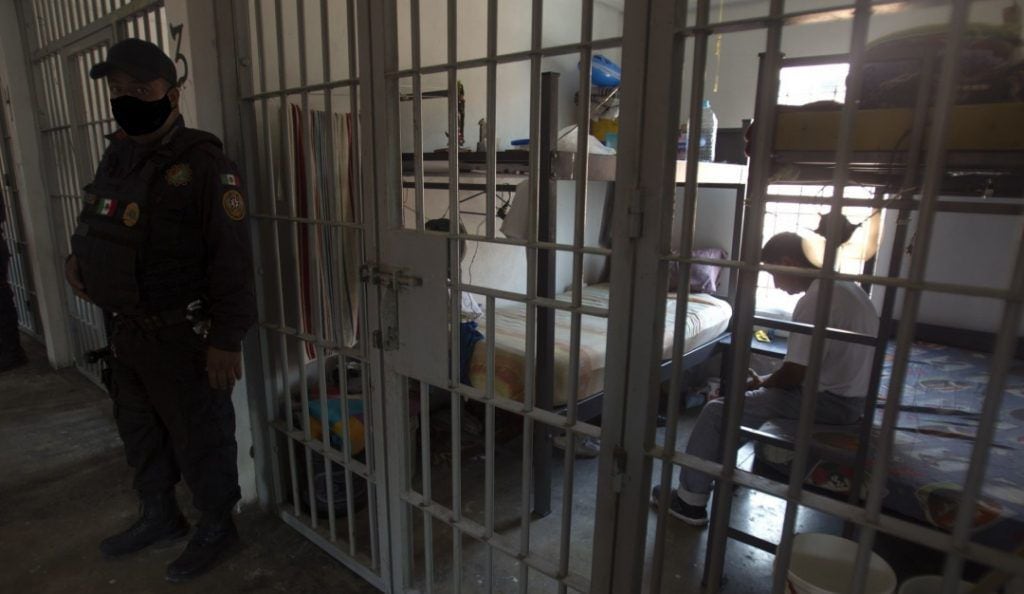
I do not remember a communication of a more authoritarian nature than the one sent by five people with high public responsibilities to the president of the Supreme Court of Justice of the Nation on April 12. It is a writing worthy of an authoritarian regime. Now, I am sorry to admit, a Chavista echo surrounds us.
The topic is not new and is of utmost importance. This is the figure of informal preventive detention that is in the Constitution and that the current government wants to expand to multiple crimes. A measure that consists of the following: the simple accusation by the authority against a person for the alleged—and unproven—commission of a crime, entails his immediate arrest. That is to say: you are accused and you are deprived of your freedom without further ado, immediately; without any defense or judicial evaluation. A measure that, rightly, the majority of respectable jurists consider incompatible with a constitutional rule of law.
I have had the opportunity to write about the subject in other columns in this same space; So now I focus my attention on the signatories and the arguments of the letter addressed to the constitutional court.
The first signature is from the Secretary of the Interior. In charge of internal politics, the young lawyer, a graduate of the UNAM Law School, heads a cause that contradicts the Constitution and the international treaties to which Mexico is a party. She does so knowing that Article 1 of the Constitution states, among other things, the following:
“In the United Mexican States all people will enjoy the human rights recognized in this Constitution and in the international treaties to which the Mexican State is a party, as well as the guarantees for their protection (…).
The norms relating to human rights will be interpreted in accordance with this Constitution and the international treaties on the matter, favoring the broadest protection for people at all times (…).
All authorities, within the scope of their powers, have the obligation to promote, respect, protect and guarantee human rights in accordance with the principles of universality, interdependence, indivisibility and progressivity. (…).”
He knows this because he studied it at the university and, for the same reason, he also knows that the alleged legal basis of the letter he has signed does not withstand a minimum of serious analysis. He also knows the principle of presumption of innocence that is contained in article 21 of the Constitution itself and knows what the jurisdiction of the Inter-American Court of Human Rights is in Mexico. I assume that he has also read the precedents of that international court on informal preventive detention. So he knows that Article 19 of our Constitution is unconventional and, therefore, it must be inapplied. But knowing it is one thing and abiding by it is another. What the Secretary of the Interior asks the SCJN is to disregard what the Constitution orders. No more no less.
Even more disconcerting—even cause for regret—is the last signature on the letter. The Secretary of Foreign Affairs spills her prestige in one shameful stroke. The diplomat who served as executive secretary of the Economic Commission for Latin America and the Caribbean (ECLAC) between July 2008 and March 2022, signs a letter in which it is stated that the Inter-American Court is “a regional body for the administration of justice where ( sic) its judges represent the interests of foreign governments and the Organization of American States (OAS).” Beyond the nonsense, she worries the voice that utters it. The ambassador’s surrender can only announce nefarious causes.
The third signing official, in reality, is a battering ram of the other two signatories. The Secretary of Security and Citizen Protection accompanies the Secretaries of National Defense and Mariana in the defense of a legal figure that, on the one hand, shows the absence of civil justice authorities capable of investigating and prosecuting crimes and, on the other, it shows the threatening teeth of the State. A figure that reminds us that a weak State can also be authoritarian; weak for its inability to provide security to people and prosecute crimes with professionalism, technical capacity and legal rigor and authoritarian for resorting to violence as a method to remedy the above. The worst of all worlds.
Two ideas slipped into the document increase my alerts. I conclude with them. First, the allusion to national security as an argument to order constitutional judges to keep the figure of informal preventive detention in force. This, the letter says, “is imposed on individuals associated with organized crime groups” with economic capacity who could evade justice; Furthermore, suppressing it would imply “a risk to the safety of the population.” Those statements Bukele exude a lot.
The second is a —new— intimidation of the Judiciary. The concern of the signatories increases – they tell us – “in the face of the corruption that has frequently been detected within (that power) by some judges who act in a factious manner to favor criminals.”
This is a statement without evidence, but as threatening as the informal preventive detention that this government wants to use at its discretion.
